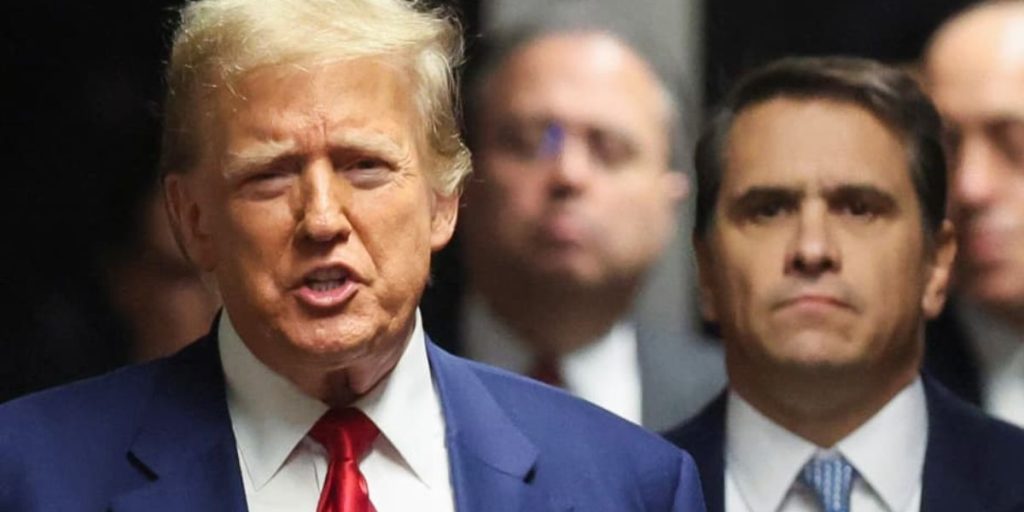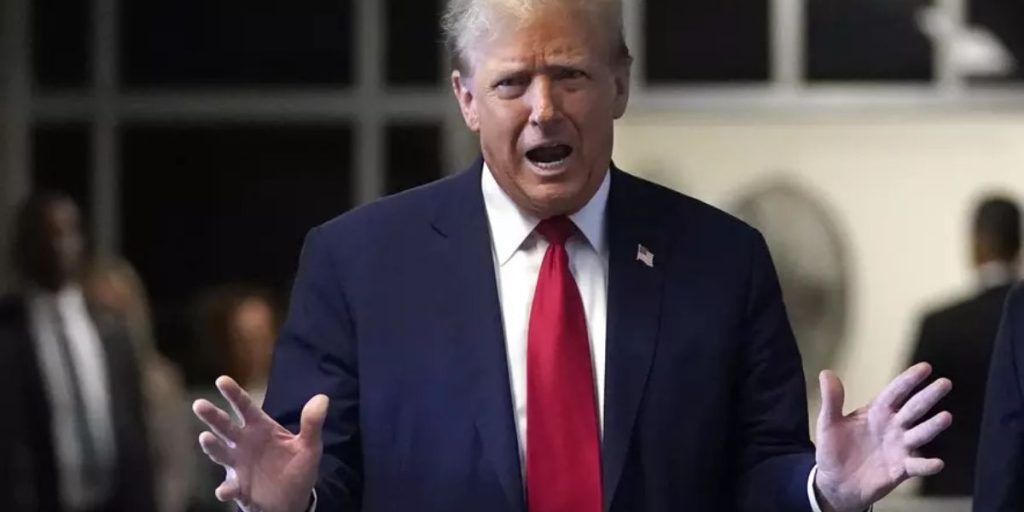The United States Secret Service had discussions and began planning for what would happen if former President Donald Trump was found in contempt of court in his criminal hush money trial and Judge Juan Merchan sentenced him to short-term imprisonment, according to sources familiar with the matter.
Merchan withheld his verdict on the subject on Tuesday, following a tense hearing. Prosecutors claimed they are currently seeking a fine.
“We are not yet seeking an incarceration penalty,” Assistant District Attorney Chris Conroy said. “But the defendant appears to be angling for that.”

Officials do not believe Merchan will place Trump in a holding cell in the courthouse, but they are preparing for the possibility, they said.
There have not been any discussions about what to do if Trump is convicted and sentenced to prison.
The former president is on trial for felony accusations of manipulating business documents to conceal the repayment of a hush money payment made by his then-attorney Michael Cohen to adult film actress Stormy Daniels prior to the 2016 presidential election.
The Secret Service refuses to discuss specific plans on the subject.
“Under federal law, the United States Secret Service must provide protection for current government leaders, former Presidents, and First Ladies, visiting heads of state and other individuals designated by the President of the United States,” according to a statement issued by the Secret Service.

“We analyze sites all over the world and design comprehensive and layered protection models that include cutting-edge technology, protective intelligence, and innovative security strategies to secure our protectees. Aside from that, we do not comment on specific protective activities.
Prosecutors alleged that Trump breached the restricted gag order, which restricts statements regarding witnesses, jurors, and lawyers in the case other than Manhattan District Attorney Alvin Bragg, at least ten times this month.
Trump’s lawyers told Merchan that prosecutors had not established that Trump’s social media posts attacking Cohen and Daniels were willful violations of the gag order and that the former president was protecting himself against attacks by the likely witnesses.
Defense attorneys also claimed that the gag order is imprecise and allows Trump to make “political” statements.